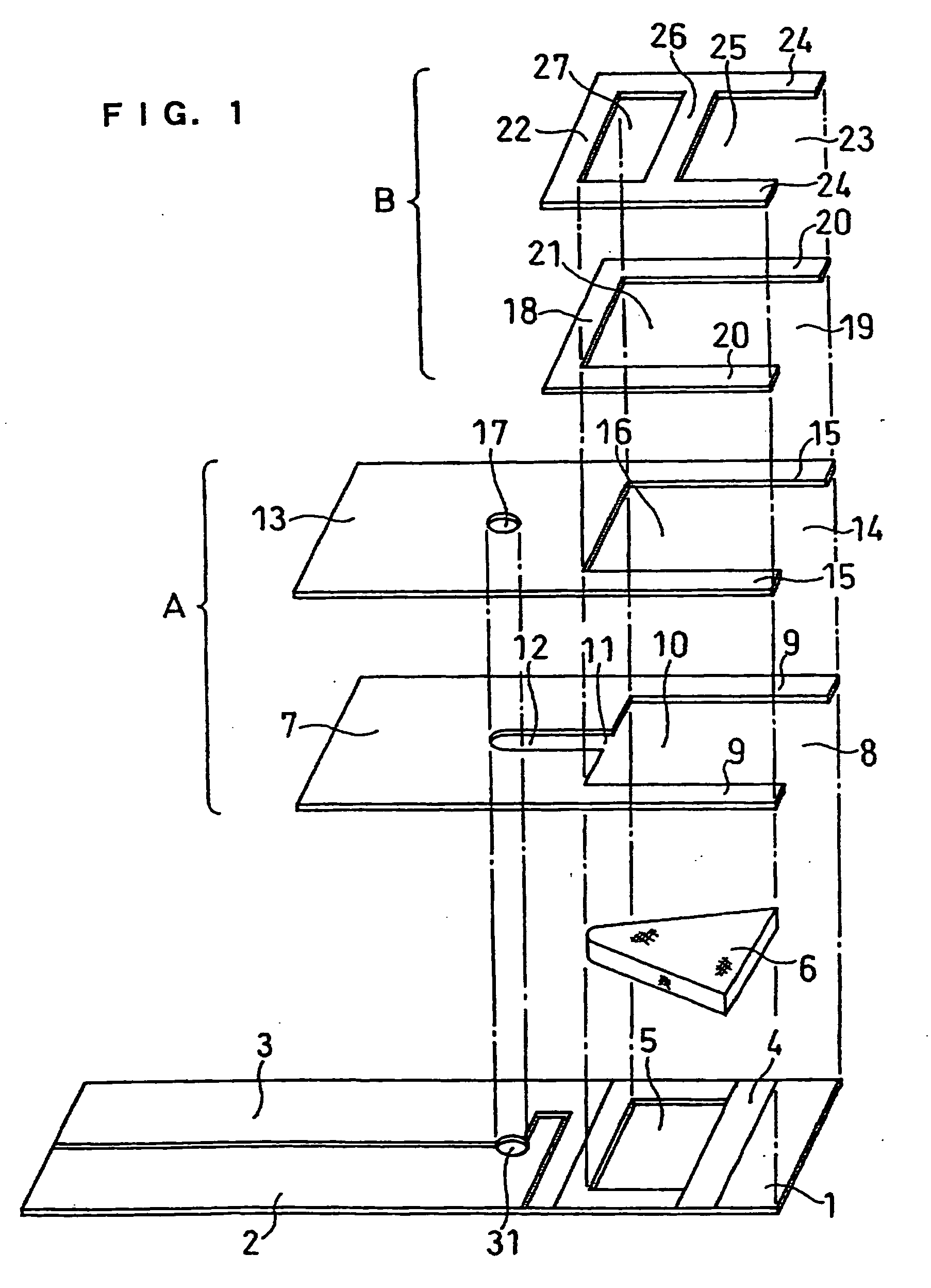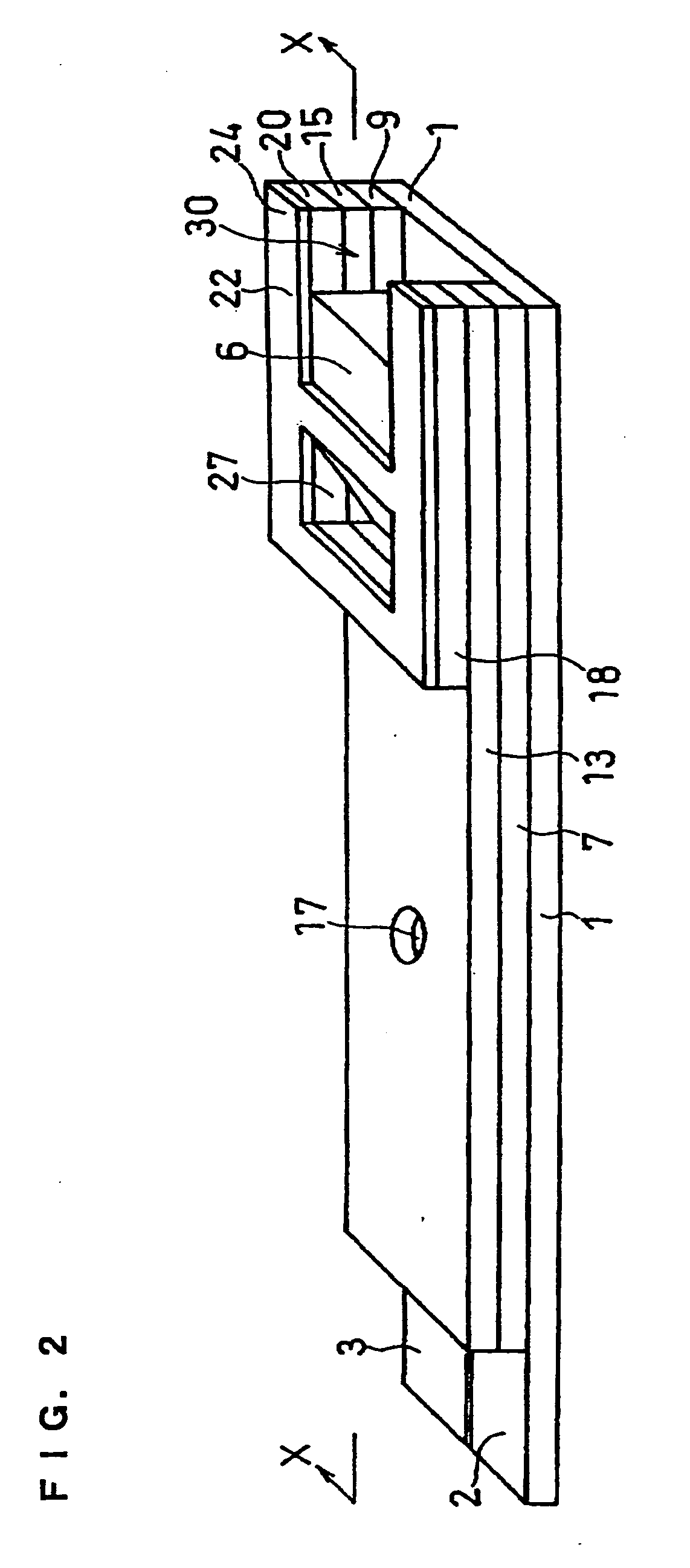Biosensor
a biosensor and sensor technology, applied in the field of biosensors, can solve the problems of destroying the hemocytes captured in the filter to dissolve hemoglobin, making it impossible to measure whole blood as done in the glucose sensor, and affecting the measurement accuracy of the glucose sensor, so as to eliminate the possibility of destroying the hemocytes and the effect of rapid flow into the sensor
- Summary
- Abstract
- Description
- Claims
- Application Information
AI Technical Summary
Benefits of technology
Problems solved by technology
Method used
Image
Examples
Embodiment Construction
[0072] A cholesterol sensor configured as shown in FIGS. 1, 2 and 4 was fabricated in the following manner. An electron mediator was contained in a reaction layer 29 and cholesterol oxidase, cholesterol esterase and a surfactant were contained in a reaction layer 29'.
[0073] First, 5 .mu.l of 0.5 wt % CMC aqueous solution was dropped onto the electrode system of the insulating base plate 1 and dried in a warm-air dryer at 50.degree. C. for 10 minutes to form a hydrophilic polymer layer 28.
[0074] Then, 4 .mu.l of potassium ferricyanide aqueous solution (corresponding to 70 mM of potassium ferricyanide) was dropped onto the hydrophilic polymer layer 28 and dried in the warm-air drier at 50.degree. C. for 10 minutes to form a reaction layer 29 containing potassium ferricyanide. Further, to a solution dissolved therein cholesterol oxidase derived from Nocardia (EC1.1.3.6: ChOD) and cholesterol esterase derived from Pseudomonas (EC.3.1.1.13: ChE), polyoxyethylene (10) octyl phenyl ether (...
PUM
| Property | Measurement | Unit |
|---|---|---|
| pore diameter | aaaaa | aaaaa |
| thickness | aaaaa | aaaaa |
| thickness | aaaaa | aaaaa |
Abstract
Description
Claims
Application Information
 Login to View More
Login to View More - R&D
- Intellectual Property
- Life Sciences
- Materials
- Tech Scout
- Unparalleled Data Quality
- Higher Quality Content
- 60% Fewer Hallucinations
Browse by: Latest US Patents, China's latest patents, Technical Efficacy Thesaurus, Application Domain, Technology Topic, Popular Technical Reports.
© 2025 PatSnap. All rights reserved.Legal|Privacy policy|Modern Slavery Act Transparency Statement|Sitemap|About US| Contact US: help@patsnap.com



